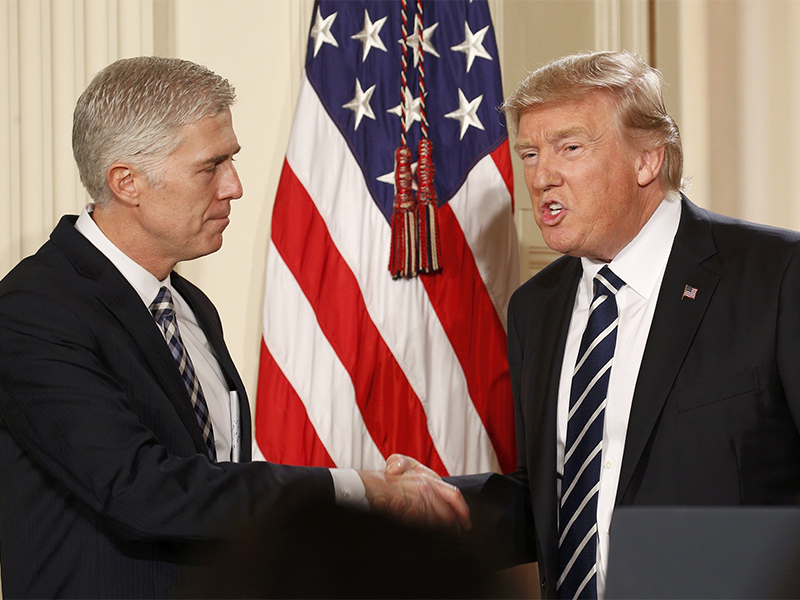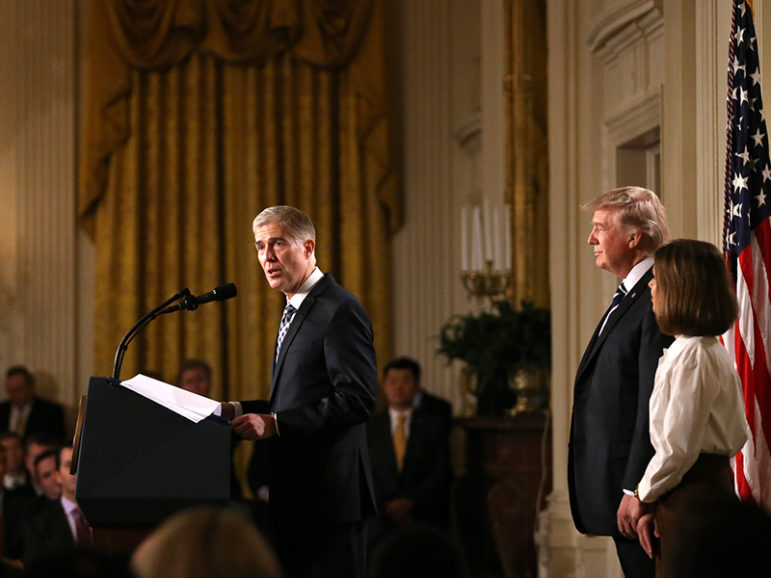(RNS) President Donald Trump has announced Neil Gorsuch of the 10th U.S. Circuit Court of Appeals as his Supreme Court nominee to replace the late Justice Antonin Scalia, who died last February.
Here are five faith facts about Gorsuch:
1. Gorsuch, 49, now attends an Episcopal church, but he attended Catholic schools.
He studied at the Jesuit-run Georgetown Preparatory School in Bethesda, Md., while his mother, Anne Gorsuch, served as President Ronald Reagan’s administrator of the Environmental Protection Agency. After college and law school at Columbia and Harvard respectively, Gorsuch clerked for Justice Anthony Kennedy, who is Catholic. Gorsuch, his wife and two daughters attend St. John’s Episcopal Church in Boulder, Colo.
2. Gorsuch has supported religious groups against the U.S. government.
Two major religious liberty cases wound up before Denver’s 10th Circuit Court of Appeals, where Gorsuch has served since 2006: The Little Sisters of the Poor v. Burwell and Hobby Lobby v. Burwell. In both cases, religious organizations — a Catholic order of nuns and the evangelical owners of a craft store chain — sought exemptions from providing birth control under the Affordable Care Act, or Obamacare. “All of us face the problem of complicity,” he wrote in support of Hobby Lobby. Government should not force those with “sincerely held religious beliefs” to comply with “conduct their religion teaches them to be gravely wrong.” The Supreme Court agreed in a 5-4 decision in 2014.

President Donald Trump shakes hands with Neil Gorsuch, left, at the White House after nominating him to be an associate justice of the Supreme Court on Jan. 31, 2017. Photo courtesy of Reuters/Kevin Lamarque
3. Gorsuch opposes euthanasia and assisted suicide, two positions that coincide with the views of a majority of Christian denominations.
He wrote a book titled “The Future of Assisted Suicide and Euthanasia” that argued for maintaining laws against assisted suicide and euthanasia.
4. Gorsuch has not ruled in an abortion-related case.
But he is lauded by many conservative religious people and groups who seek the overturning of Roe v. Wade because of how he wrote about the value of life in his book. “All human beings are intrinsically valuable and the intentional taking of human life by private persons is always wrong,” he wrote. “The law … doesn’t just apply to protect popular religious beliefs: it does perhaps its most important work in protecting unpopular religious beliefs, vindicating this nation’s long-held aspiration to serve as a refuge of religious tolerance.”
5. Gorsuch reminds some, rightly or wrongly, of Scalia, who was a conservative, an originalist and who spoke often of his Catholic faith.
University of Denver law professor Justin Marceau told The Denver Post that Gorsuch would be Scalia’s “intellectual equal and almost certainly his equal on conservative jurisprudential approaches to criminal justice and social justice issues that are bound to keep coming up in the country.”





